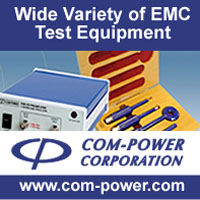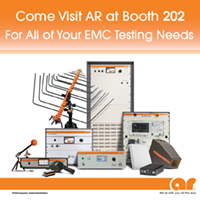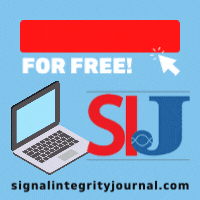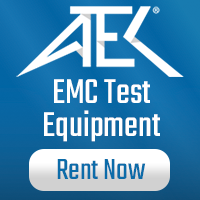Announcing the “Ask The Experts” Panels at the
2022 IEEE International Symposium on EMC+SIPI in Spokane, Washington
Join us for several exciting panels that will be held on August 2-4, 2022 in the Exhibition Hall of the Spokane Convention Center. Each panel features speakers who are invited due to their expertise in the panel topic. Note many of our panelists are NEW to attending the EMC Society’s Symposium; we are fortunate to have these new experts as well as returning experts available to join us in Spokane! The panel topics were selected based on current and emerging technology trends as well as significance to the EMC and SIPI communities. Please check the Final Program on the symposium website for the schedule and specific details on the following panels.
Input/Output Buffer Information Specification (IBIS)
Co-Chairs, Randy Wolff, Micron Technology Inc., Boise, ID, USA and Zhiping Yang, Waymo LLC, San Francisco, CA, USA
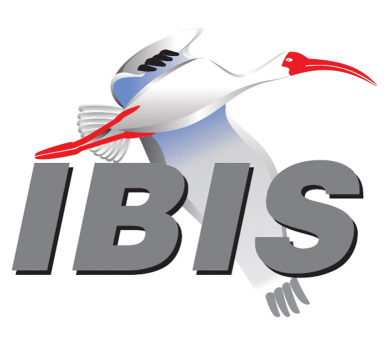 IBIS (I/O Buffer Information Specification) is a standard that enables silicon vendors, simulation software vendors, and end customers to exchange modeling data and electronic behavioral specifications of integrated circuit input/output analog characteristics. The intention of this standard is to specify a consistent format that can be parsed by software, allowing simulation vendors to derive models compatible with their own products. The IBIS version 7.1 was officially ratified on December 10, 2021. Version 7.1 adds more technical advances and some editorial changes documented in 15 BIRDs. Some highlighted new features are Touchstone and IBIS-ISS impedance model, IBIS Algorithmic Modeling Interface (IBIS-AMI) improvements, the IBIS-AMI “back-channel” link training protocol enhancement, simplified on-die PDN model, etc. The IBIS “Ask the Experts” panelists consists of active members of the IBIS Open Forum and represents semiconductor companies, EDA tool vendors, IBIS model providers, and system users. Please attend this panel and bring your questions related to the released IBIS features and future IBIS development directions.
IBIS (I/O Buffer Information Specification) is a standard that enables silicon vendors, simulation software vendors, and end customers to exchange modeling data and electronic behavioral specifications of integrated circuit input/output analog characteristics. The intention of this standard is to specify a consistent format that can be parsed by software, allowing simulation vendors to derive models compatible with their own products. The IBIS version 7.1 was officially ratified on December 10, 2021. Version 7.1 adds more technical advances and some editorial changes documented in 15 BIRDs. Some highlighted new features are Touchstone and IBIS-ISS impedance model, IBIS Algorithmic Modeling Interface (IBIS-AMI) improvements, the IBIS-AMI “back-channel” link training protocol enhancement, simplified on-die PDN model, etc. The IBIS “Ask the Experts” panelists consists of active members of the IBIS Open Forum and represents semiconductor companies, EDA tool vendors, IBIS model providers, and system users. Please attend this panel and bring your questions related to the released IBIS features and future IBIS development directions.
Planned Panelists Include:
- Randy Wolff, Micron Technology Inc
- Bob Ross, Teraspeed Labs
- Zhiping Yang, Waymo LLC
- Michael Mirmak, Intel Corp Folsom
- Ken Willis, Cadence Design Systems Inc.
- Wei-hsing Huang, ANSYS
IBIS Members
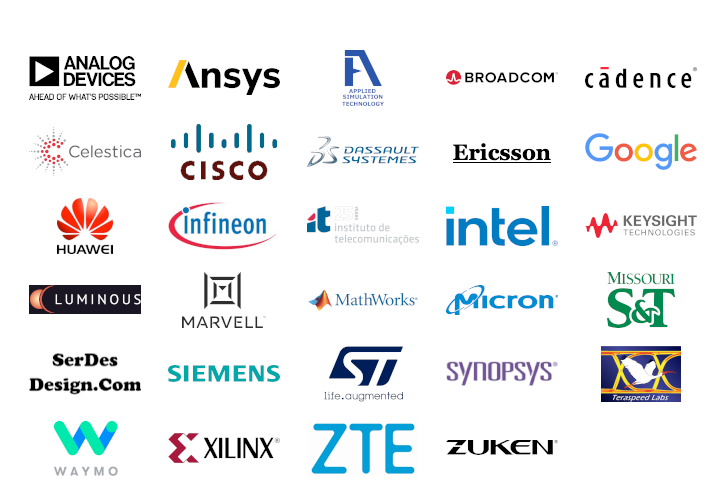
Understanding the Havana Syndrome
Chair: Robert G. Olsen, Washington State University, Pullman, WA, USA
According to a 2020 US National Academy report, "in late 2016, U.S. Embassy personnel in Havana, Cuba, began to report the development of an unusual set of symptoms and clinical signs.” For some of these patients, their case began with the sudden onset of a loud noise, perceived to have directional features, and accompanied by pain in one or both ears or across a broad region of the head, and in some cases, a sensation of head pressure or vibration, dizziness, followed in some cases by tinnitus, visual problems, vertigo, and cognitive difficulties. One conclusion of the report was that, “Overall, directed pulsed RF energy, especially in those with the distinct early manifestations, appears to be the most plausible mechanism in explaining these cases among those that the committee considered.” In this panel session, two experts, one in biophysical mechanisms and one in high power electromagnetics, will discuss whether this conclusion is or is not reasonable. Bring your questions or simply listen and learn.
Planned Panelists Include:
- Ken Foster (ret.), Department of Bioengineering, University of Pennsylvania, IEEE Fellow, who had studied the Microwave Auditory (Frey) Effect and is one of the authors of the recently published article, “Can the Microwave Auditory Effect be ‘Weaponized’?”
- William Radasky of Metatech Corp., IEEE Fellow, who is well-known to the EMC community as an expert in the area of Intentional Electromagnetic Interference.
Electromagnetic Effects
Chair: Karen Burnham, Electro Magnetic Applications, Lakewood, CO, USA
If you have an interest in the electromagnetic environment (EME); the development of standards for EME measurement and characterization; natural and man-made sources of EME that comprise this environment; the effects of noise (unwanted portions of EME) on systems performance; and/or the effects of international civil and military standards intended to control man-made intentional and unintentional emissions of electromagnetic energy, then this is the panel for you. The experts on this panel have decades of experience addressing the impact and interaction with the EME across military and civilian applications.
Planned Panelists Include:
- Tom Fagan, Aerospace Corporation, Vail, AZ, USA
- Fred Heather, US Navy, Lexington Park, MD, USA
- Frank Leferink, Thales and University of Twente, The Netherlands
- Karen Burnham, Electro Magnetic Applications, Lakewood, CO, USA
Accreditation, Designation, and Recognition: Supporting the Global Telecom Regulatory Ecosystem
Chair: Megan McConnell, A2LA, Frederick, MD, USA
A panel of Accreditation Bodies, Regulators, and Designating Authorities describe the process from Accreditation to Recognition of Testing Laboratories and Product Certification Bodies as it relates to the Global Telecom Ecosystem. This will include both Government Mutual Recognition Agreements (MRA), and Accreditation Body specific recognitions. Together, the panel will describe the roles and responsibilities of all levels, how all steps fit together, what each party is able to offer, and the different areas that each party supports. The panel will also provide tips and tricks for preparing your organization for recognition and applying for both accreditation and designation. Before a brief Q&A, the panel will identify the different resources available to all parties and instructions on access.
Planned Panelists Include:
- Megan McConnell, A2LA, Frederick, MD, USA
- Ramona Saar, NIST, Gaithersburg, MD, USA
- Amanda McDonald, NVLAP, Gaithersburg, MD, USA
- George Tannahill, FCC, Columbia, MD, USA
ATX 3.0 PSU and PCIe 5.0 Card Power Delivery: More Power, Flexibility, and Control
Co-Chairs: Timothy Wig, Stephen Eastman, and Aurelio Rodriguez Echevarria, all with Intel
The ATX v3.0 power supply specification and the PCI Express 5.0 CEM Specification have been expanded to support the new 600W PCIe card power level while providing a range of features such as compact, high-power connectors, new power rails, and a long-overdue allowance for brief power excursions. The limit on total card power consumption was doubled, from 300 W to 600 W, and a new 48V power rail was added. Two new power connectors were introduced to provide the full 600 W through a single connector on either the 12V or 48V rail. This markedly simplifies the design of card voltage converters vs. the legacy power scheme, which required multiple, mismatched 12V rails for any cards over 75 W. Extensive new content in the ATX power supply spec addresses the power supply requirements that will be needed to support these capabilities. Prior to this 3.0 release, the ATX power supply specification had not been significantly revised since 2003. Taken together, these developments will have a major shift on the architecture of both client and server chassis and will be deployed starting in Q4 2022.
Planned Panelists Include:
- Stephen Eastman of Intel is a Platform Power Specialist and the author of the ATX 3.0 Multi-Rail Power Supply Design Guide, the industry standard for desktop power supplies, and the new ATX12VO Single-Rail Power Supply Design Guide.
- Timothy Wig of Intel is a central contributor to the PCI Express Card Electromechanical (CEM) Specification and drove the development of new PCIe power delivery and SI strategies for the 5.0 PCIe card spec. Tim also edits the spec document.
- Aurelio Rodriguez-Echevarria is Intel’s Server Power Delivery Architect and author of the Modular Common Redundant Power Supply Design Guide.
